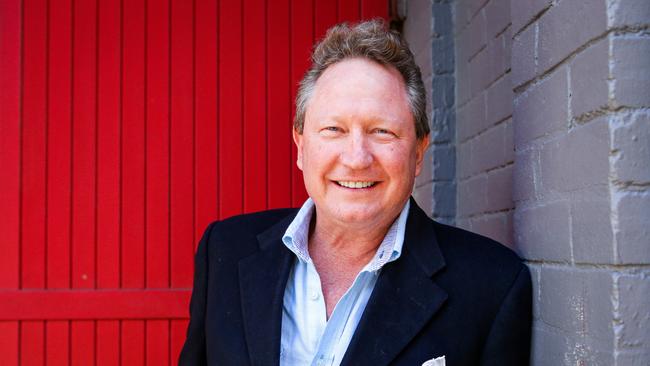‘We have a mutual obligation to end the welfare trap’

ONE-THIRD of all government spending is on welfare and welfare-related social security. That’s a massive $131 billion last year and growing year by year.
Australia is becoming welfare-dependent and each of us must bear responsibility. Welfare is becoming a destination and a trap for too many of our fellow Australians.
Yesterday I released with Tony Abbott the Creating Parity Review. It is the first holistic strategy to remove the indigenous disparity for all time from Australia. Of course this is impossible without addressing the huge indigenous disadvantage caused by that very same welfare trap.
The recommendations are considered by many experts, both practical and academic, to be powerful enough to bring the disparity to an end if implemented together. This will remove inherent indigenous disadvantage once and for all.
As I discovered in writing this review, the despair of disparity does not lie in indigeneity, but that our First Australians, in large measure, like all vulnerable Australians, have fallen prey to poor government policy and policy implementation, the soft bigotry of low expectations and the grip of a cash welfare system that encourages poor short-term decision-making. The review team and I travelled Australia, read almost 400 submissions and listened to hundreds tell us that welfare is debilitating. I have learnt government needs policies to ensure our kids go to school and that our country needs a welfare system that doesn’t give up on our people.
It was on this journey that I encountered two critical truths. The first is the disparity comes to an end between first and other Australians with a decent education; in fact, indigenous women with degrees have higher employer outcomes than non-indigenous women. The second was that mutual obligation of welfare recipients to welfare payers is critical to help the vulnerable out of the welfare trap.
Mutual obligation is an abstract concept but is easy to understand. When parents receive family tax benefits for raising a family and sending their kids to school, surely they have a mutual obligation to actually send their kids to school. When people receive welfare, this money is intended to help people up, not simply to deliver handouts. The intention isn’t to give up on them but facilitate them into, or back into, employment. Is it unreasonable this money not be used for illicit drug or alcohol addictions?
I’m not saying a welfare recipient can’t have such habits, but I am recommending that harmful practices that set recipients back not be funded with taxpayer dollars designed to help them. We need to use Family Tax Benefits and the welfare system for what it was originally intended: to support families send healthy kids to school and, unsurprisingly, should parents fail systematically to meet this simple mutual obligation, they stop receiving the welfare benefit designed to help them to do that.
Giving straight cash to people who have fallen into the welfare trap ignores that in many cases poor short-term decisions have led people to this position. Our all-cash welfare system hypocritically encourages continuance of poor short-term choices, steering a person further away from the workplace and a healthy lifestyle.
Drugs and alcohol continue to ravage many communities, and asking recipients that welfare be used for healthy lifestyle choices, to aid participation in the mainstream economy is a completely reasonable mutual obligation. Spending on illicit drugs completely removes the benefit of that mutual obligation. In the past this was forgivable but it no longer is, as we now have a cashless welfare system available to us that every Australian should demand.
A cashless welfare system that supports our most vulnerable and disadvantaged — when combined with other measures in the review, such as linking family benefit allowance payments of some $20 billion a year to actual school attendance, and the card — will encourage sound short-term decision-making. The mutual obligation will be of great benefit to the health of children and their parents.
The most formative years are not at school but from conception to three years. This is when the brain reaches 90 per cent of its full size. From birth to three , the human brain grows by some 300 per cent; after three, not much more than 5 per cent. If the brain is not supported with emotional, social, physiological and parental stimulation during this time, the damage is already done. And we haven’t even mentioned the crisis of Foetal Alcohol Spectrum Disorder.
The mutual obligations recommended in Creating Parity become critically important to these vulnerable kids because, without that brain development, the disparity has already started. It is incredibly difficult and expensive to make up this loss. For every $1 invested in early childhood, there is a $7 return to society yet we continue to focus our resources on the consequences of failing children before they start school.
Welfare is supposed to be a stop-gap to empower an individual to become self-reliant, to choose what they want to eat, where they want to live and where to send their kids to school. In short, to enjoy the freedoms that Australians hold dear.
I have spent 10 months hearing stories about the heartache drugs and alcohol cause indigenous communities. Ask yourself if you are happy living in a country where an indigenous woman is 30 times more likely to be hospitalised for assault than non-indigenous women or 80 times more likely to be hospitalised for assault in the Northern Territory. This is the primary reason for the healthy welfare card. It’s not about minimising welfare, it’s about ensuring welfare is used for its purpose: housing, food, and education.
Not drugs. Not alcohol. I’m not asking for the right to consume alcohol to be removed or commenting on the practice of illicit drug consumption — I’m simply recommending it not be paid for with other’s money.


